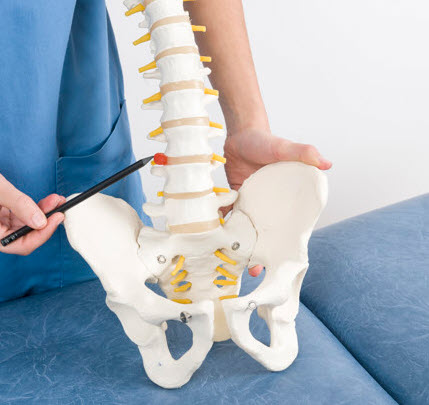Spinal discs are like jelly donuts in between the bones of your spine. They act like shock absorbers so that the bones don’t rub against each other. The 23 discs along the spine also help hold the bones in place and provide comfortable movement.
What is degenerative disc disease?
When we are born, the discs in our spines consist of 80% water. As we age, they dehydrate and stiffen. This renders them less able to withstand the demands put upon the spine during normal daily activities. In some people, this causes significant discomfort and loss of mobility. Degenerative disc disease can begin as early as people in their 20’s, while most people actually have some amount of degeneration by reaching their 30’s. Some people don’t realize it and others seek the help of physicians like spine surgeon Dr. Charla Fischer.
What are the symptoms?
The symptoms of degenerative disc disease vary widely among patients. Some may experience excruciating pain while other have no pain at all. Most of the time, pain occurs from the instability and inflammation of the spine related to the discs shrinking over time. Some of the characteristics of degenerative disc pain are:
- Pain down the spine instead of on one side or the other
- Intermittent pain
- Pain worsened by physical activity
- Pain relief when lying down
- Worsening pain when bending forward
Dr. Fischer may also see another sign of degenerative disc disease through imaging tests like X-rays that display a shrinkage in discs. As they degenerate, discs lose water, height, and flexibility.
What are the options for treatment?
The wide differences among symptoms is one thing that makes degenerative disc disease more difficult to treat. Some common treatment methods include pain and anti-inflammatory medications, massage, physical therapy, hot and cold therapy, and chiropractic treatment. Exercise programs designed to increase flexibility and improve spine function may be helpful, but only under the care of an experienced physician like Fischer. An accurate diagnosis and treatment plan are essential in improving your outlook for a full recovery.

